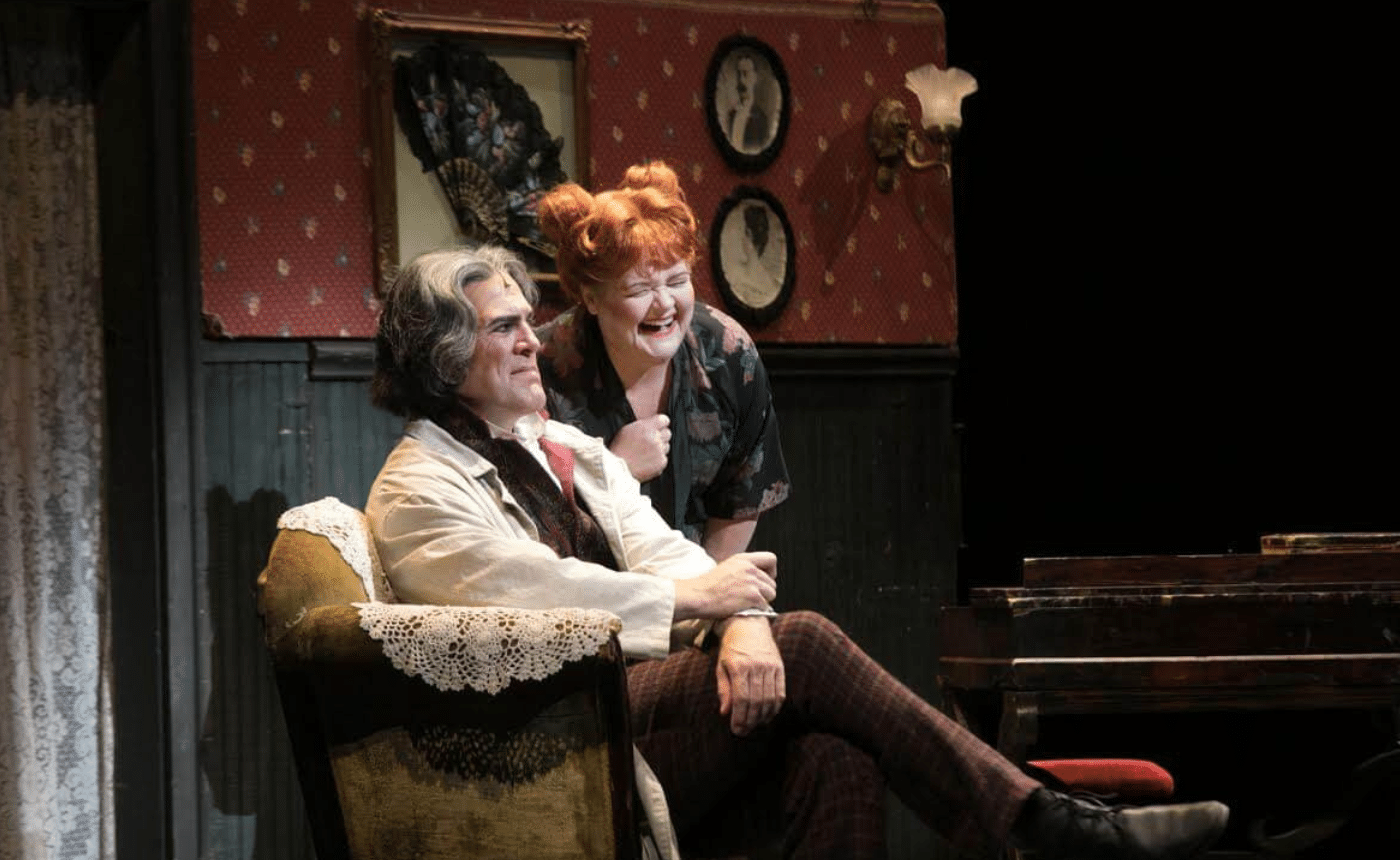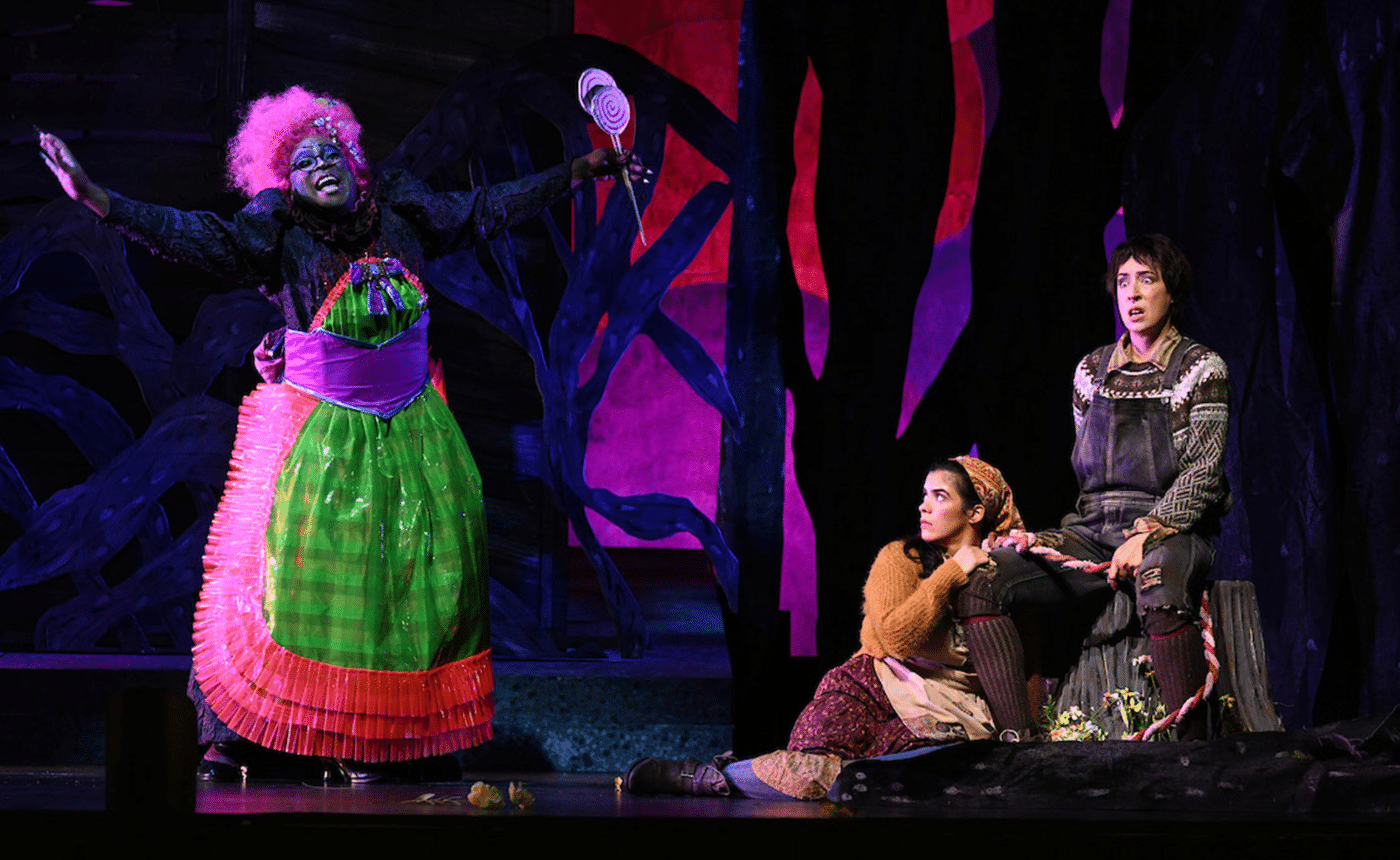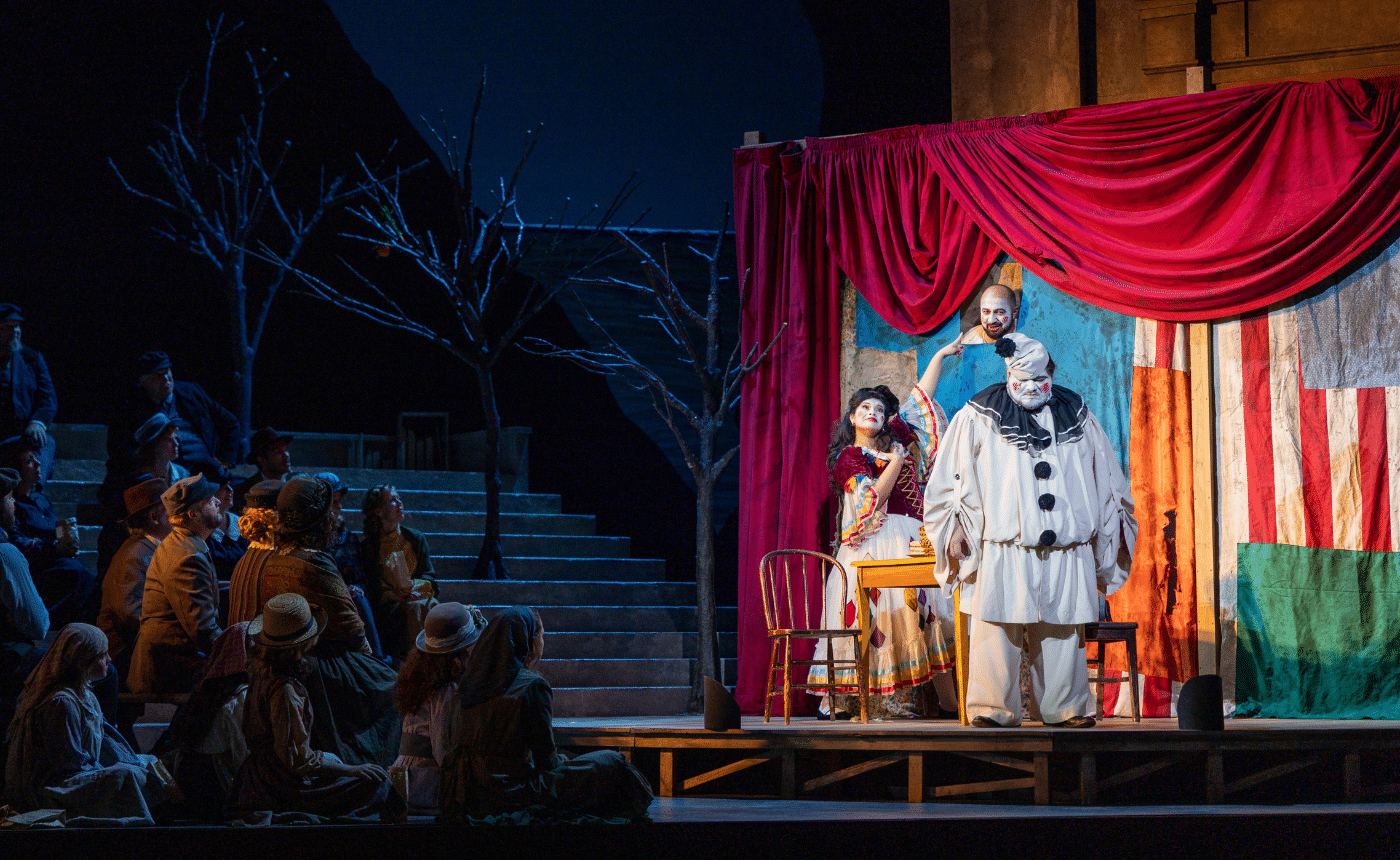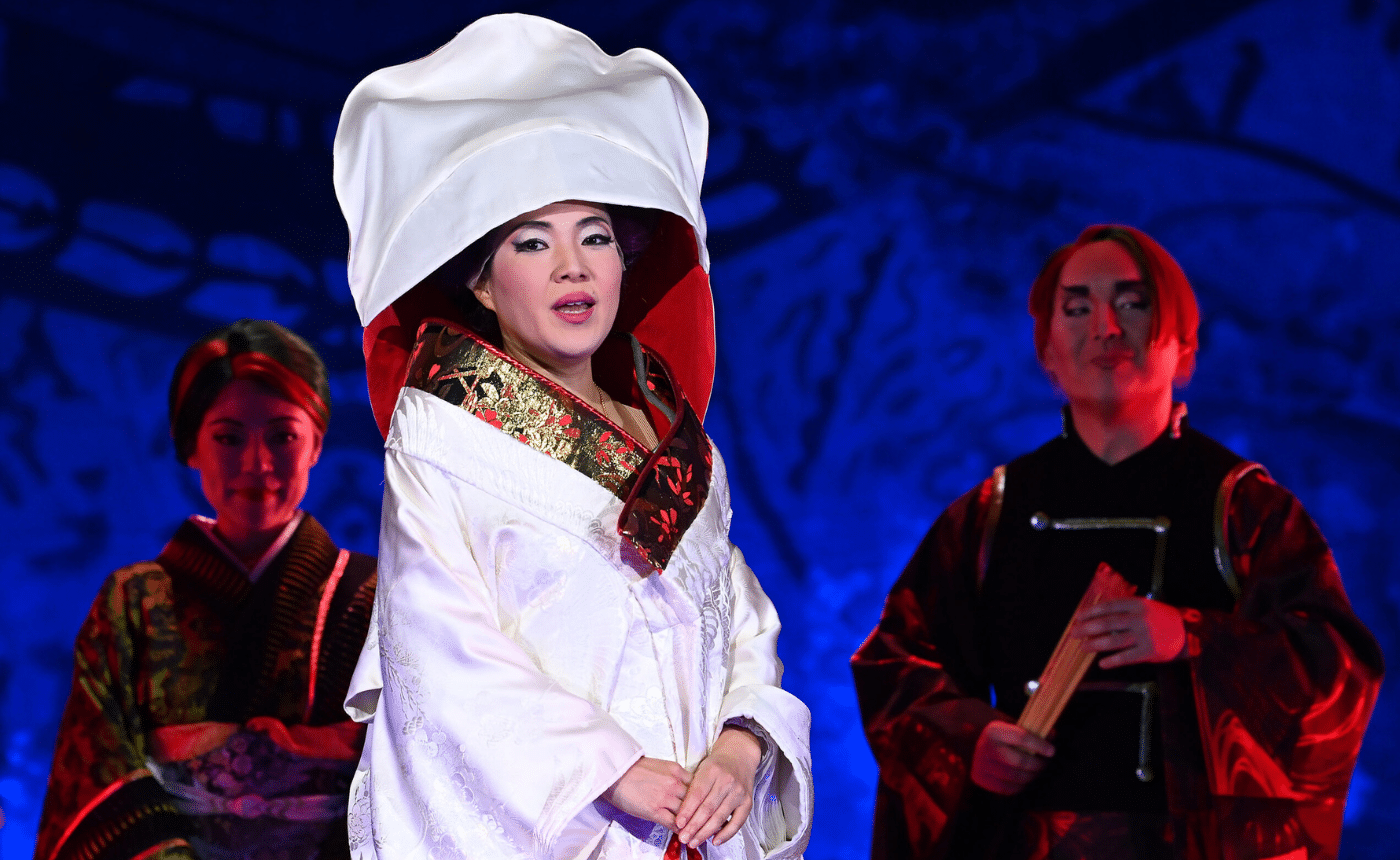Viva V.E.R.D.I.? The Distance Between Memory and Myth
by Jeff Counts
A performance of an important composer’s final masterpiece, like Verdi’s Falstaff, enables us – maybe even requires us – to reflect on their life and legacy. For Verdi it was a rather long life and an eventful one. He witnessed much change, participated in some of it and left behind a body of work and a legend that seem too large for any one man. True, his personal operatic catalogue represents by itself an entire era of the art form’s history but a big part of his celebrity rests on his reputation as a champion of the Italian Risorgimento, the 19th Century movement for a unified nation. It is easy to see why.
Imagine this scene: It is March 9, 1842 at the Teatro alla Scala in Milan and the premiere performance of Verdi’s Nabucco is underway. In the third act there occurs a chorus of Hebrew slaves who sing “Va, pensiero, sull’ali dorate…Oh mia patria si bella e perduta” (“Fly, thought, on wings of gold…Oh, my country so beautiful and lost.”) in a moving musical moment of patriotic unity, shared suffering and longing for home. In a place like Milan, still living fitfully under Austrian rule, this thinly veiled but fully intentional anthem for the cause of Italian revival strikes an immediate and vociferous chord with the audience.
So fervent is the nationalistic sentiment in the theater this night that at the end of the opera the audience demands an encore performance of “Va, pensiero,” this in direct defiance of the official ban on such things (the Austrian authorities have previously declared encores verboten, believing them to be unacceptable overtures to public disorder). This act of collective civil disobedience marks an important moment in the history of the unification movement and an equally meaningful landmark in the life of the composer himself. It is the moment that Giuseppe Verdi becomes the voice of a revolution and inspires all Italy to sing. It is a moment worthy of great opera.
Now imagine this: This celebrated event of musical and political history, so reverently referenced by scholars and biographers never actually happened. Verdi was sympathetic to the ideals that had taken hold among his countrymen but contemporary research now shows he was not making any overt social stand with the slave chorus. The audience, if it did insist on an encore that evening, very likely heard something else entirely and there is no indication now that “Va, pensiero” made near the impression on them that we once thought. To be certain, the same modern study also shows that the Nabucco chorus would indeed become the unofficial anthem of the Risorgimento, but only years later after unification, more an acknowledgment than a harbinger. By this later date, however, the tale of the “Va pensiero” encore and its spontaneous adoption as “the music of the people” was so ingrained that even Verdi himself believed he had composed it with special purpose.
The Risorgimento (resurgence or a “rising again”) sought to unify the disparate City-States of the Italian peninsula under one flag and one government and was inspired in part by the French Revolution and the nationalist idealism it spawned throughout Europe. The movement also hoped for a renewal of the great Italian society and its people, believing that freedom from foreign influence would reawaken their fragmented national personality. It would be a lengthy process, lasting from 1815 until the creation of the Italian Kingdom in 1861.
Among the history that would thereafter be written by the victors was the aforementioned Verdi myth and, by extension, the notion that many of his operas in the 1840s and 1850s (I Lombardi, Ernani, Attila, etc.) were subtly political and encoded with support for the revolution. When viewed with a distant post-Risorgimento perspective, there certainly seem to be moments in his work during that period that reflect the mood of the day, but little evidence exists to support the idea that Verdi was doing anything other than setting compelling scenes to wonderful music as he always did and always would. In almost every case, he was composing, not sermonizing. The one notable exception was La battaglia di Legnano, an 1849 opera with obvious (and intentional) patriotic overtones.
It would be wrong to assume that Verdi was lukewarm on subjects of Italian unity and sovereignty. As evidenced by La battaglia, he was a true believer and expressed so clearly in a letter to his friend Piave during the height of the activities in 1848. “The hour of liberation has come, believe it” he wrote. “It is the people that wish it and when the people want it, no absolute power can put up a resistance!” This very real expression of support for the revolution probably helped newly unified Italians later “read back” (as biographer John Rosselli puts it) into the composer’s past intentions. This made it easy to imagine him as the artistic standard-bearer of the Risorgimento throughout the long struggle, that he had been in lock-step with them all along. Earned or not, his name meant revolution and towards the end of the Austrian rule in 1859, another legend has it that opera fans began to shout Viva V.E.R.D.I. during their applause as a secret call for Viva Vittorio Emanuele Re DItalia (“Long live Vittorio Emanuele, king of Italy”).
In the end, it matters little whether or not Giuseppe Verdi was a willing and active contributor from the very beginning to the events that surrounded him. It might actually be sufficient that when his compatriots needed a symbol strong enough to validate their memories, his music proved not only fitting but possibly even a bit prophetic, a perfect soundtrack to their decades of resistance. Who can say that his muse was not somehow bound up in the spirit of his time and that the message his fellow Italians later believed they had received wasn’t actually in there somewhere front the start? Can history not be both technically incorrect and somehow exactly right?
It might be best to focus last on Verdi’s greatest non-musical gift to his country, one about which there is no doubt at all. Just three years after the completion of his last opera, Falstaff, the aging composer founded his Casa di Riposo per Musicisti, a rest home for retired musicians that still operates today. It is in Milan, of course, sustained by royalties from his operas and the master himself is buried there. A crowd of over 900 citizens attended the funeral ceremony and under Maestro Toscanini they joined voices for their national hero Verdi, a man whose role in their liberation might well have been little more (and not one bit less) than the reflected glory of his prolific greatness as a composer. What did they sing?
“Va, pensiero…”






